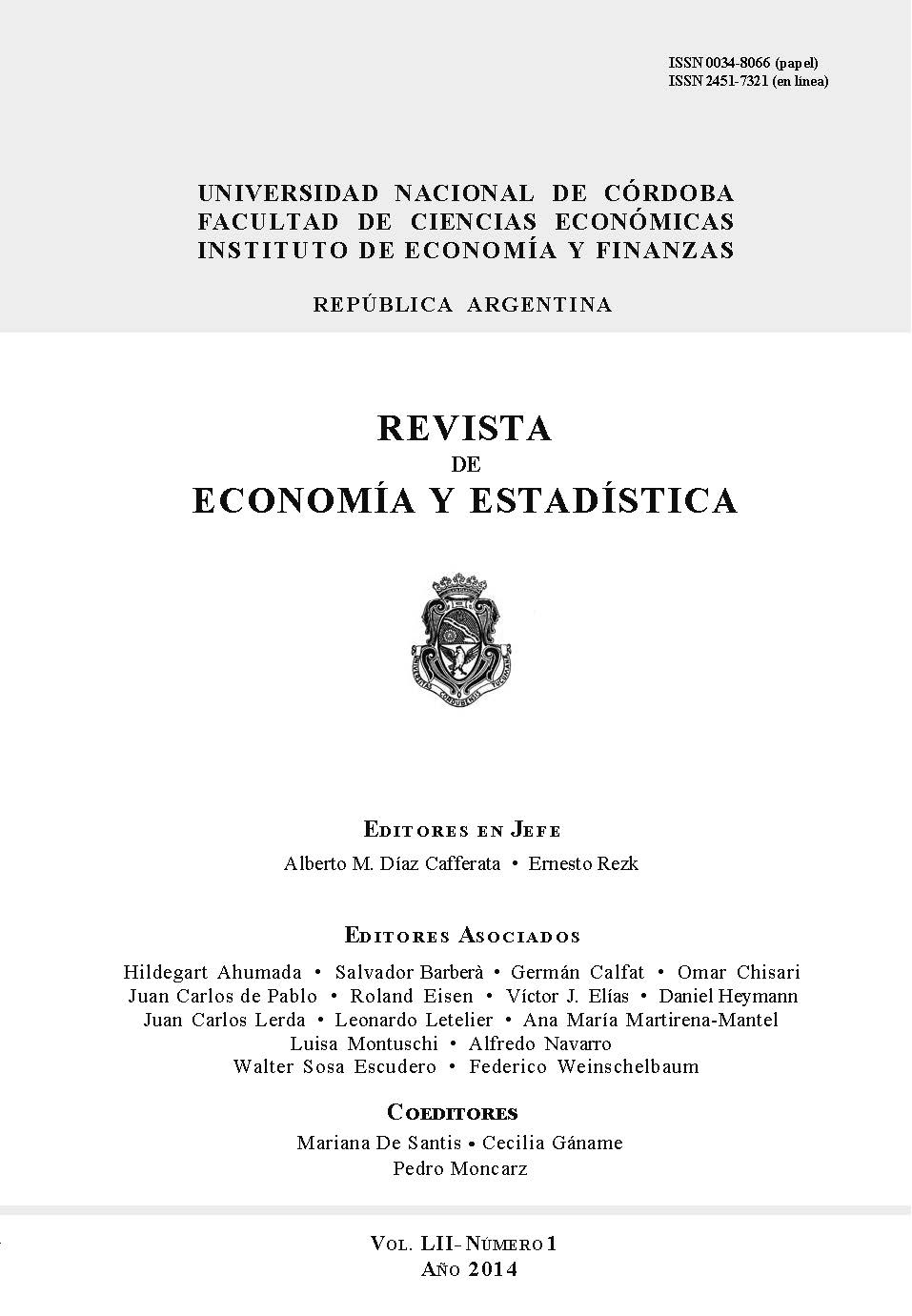The current scenario of Argentine debt. Implications of the case with holdouts
DOI:
https://doi.org/10.55444/2451.7321.2014.v52.n1.14939Keywords:
fiscal policy, Argentina, debt restructuringAbstract
In recent months he has retaken public attention the issue of the holdouts (the Argentine bondholders who did not accept the debt restructuring proposed by the government in 2005 and 2010), following the ruling of Federal Judge in the District Court in the United States by the Southern District of New York, Thomas Griesa, in favor of a group of creditors of bonds that did not enter the last two restructurings District. In this framework in addition to analyzing the possible implications that this failure has on the private sector in Argentina, it is important to contextualize the problem of holdouts. To do this, then a description of the panorama of the Argentine debt is done, making a review of past, present, and future prospects.
Downloads
Downloads
Published
Issue
Section
License
Copyright (c) 2014 Sofía Devalle

This work is licensed under a Creative Commons Attribution-NonCommercial-NoDerivatives 4.0 International License.
Authors who have publications with this journal agree to the following terms:
Authors retain their copyright and grant the journal the right of first publication of their work, which is simultaneously subject to the Creative Commons Attribution-NonCommercial-NoDerivatives 4.0 International License that allows third parties to share the work provided that its author and first publication in this journal are indicated.
Authors may adopt other non-exclusive licensing arrangements for distribution of the published version of the work (e.g. depositing it in an institutional telematic archive or publishing it in a monographic volume) as long as the initial publication in this journal is indicated.
Authors are allowed and encouraged to disseminate their work via the Internet (e.g. in institutional telematic archives or on their website) before and during the submission process, which can lead to interesting exchanges and increase citations of the published work. (See The Open Access Effect)










